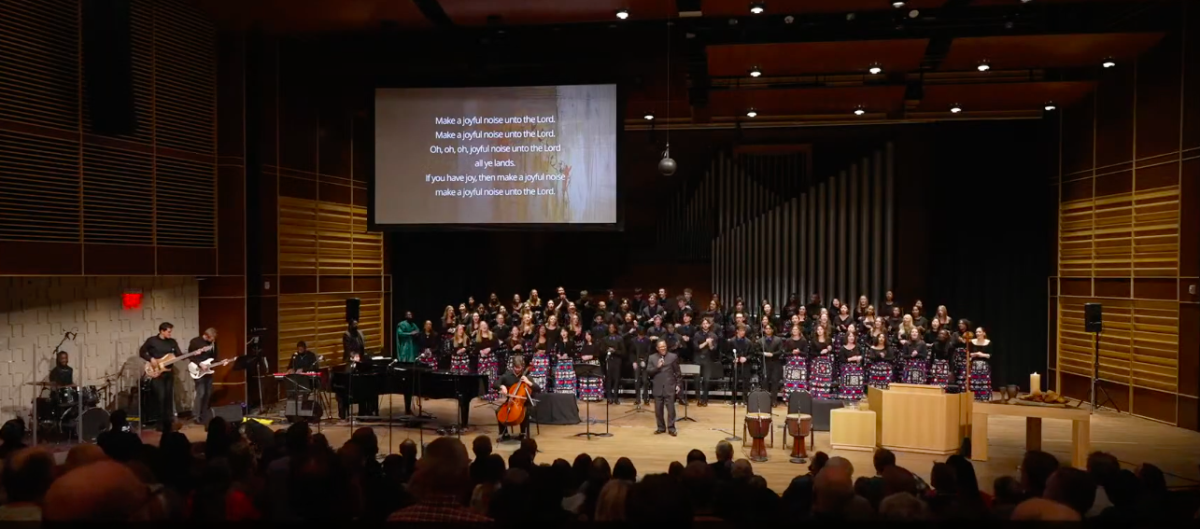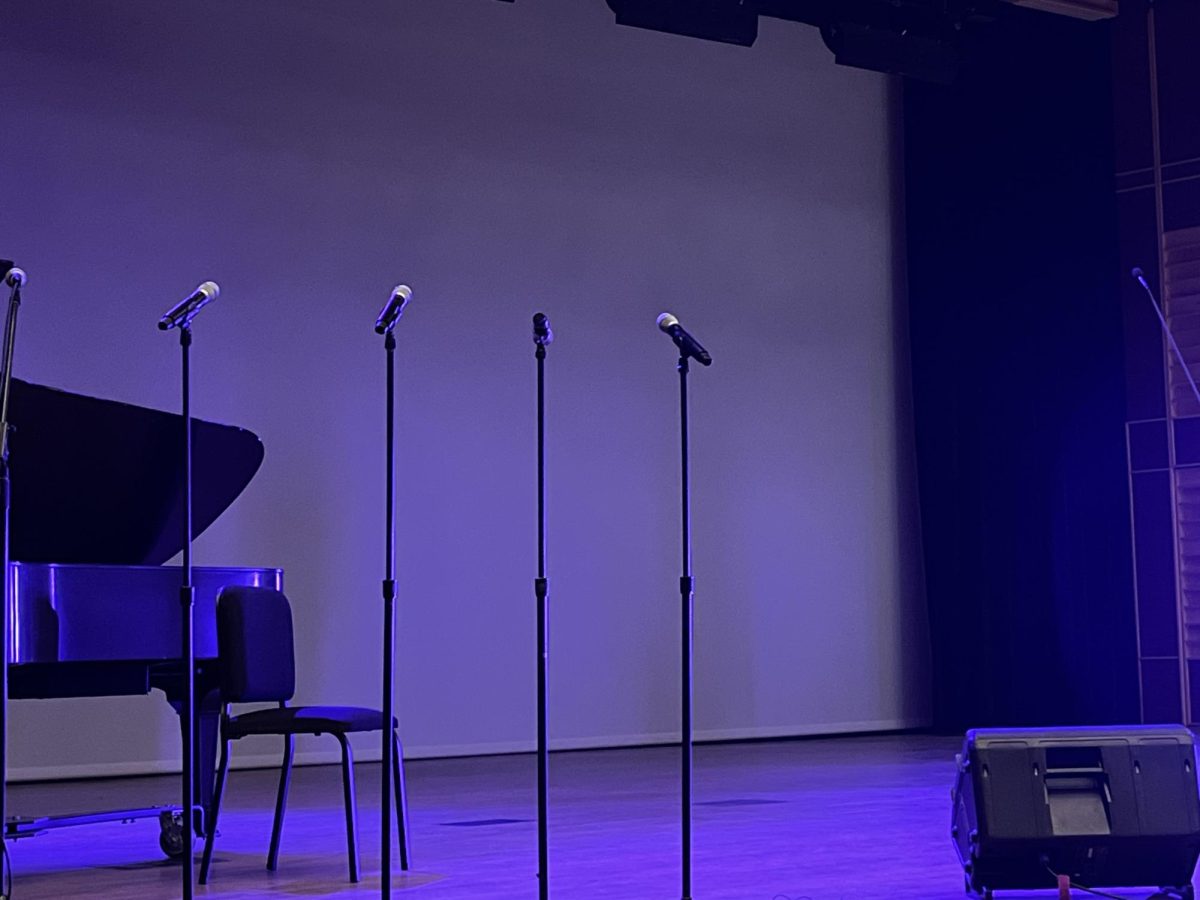On Thursday, February 6 on the stage of the CFAC’s main auditorium, Gospel Choir students dressed in colorful patterned skirts and blue-accented bow ties stood waiting as the audience filed in. Students were poised in silent anticipation on organ, guitar, drums, bass, trumpet and trombone, with Prof. Lisa Sung at the piano.
As the lights dimmed, Nate Glasper, Jr., Resource Development Specialist and Campus Worship Associate at the Calvin Institute of Christian Worship, walked to the front. Glasper is an Adjunct Professor in the Department of Visual and Performing Arts at Calvin University and currently serves as the director of Calvin University’s Gospel Choir. He and the Calvin Gospel Choir opened the evening with Raymond Wise’s original composition “We Have Come Into This House.” The slow tempo of the song was a perfect choice to set the tone for the night. The choir poured their hearts into this song, adding swaying, side-to-side steps that complemented the music’s rhythm.
As the auditorium grew silent for the Call to Worship, Michelle Loyd-Paige entered, gracefully dressed in a beautiful patterned dress. She spoke the words of the Call to Worship, inviting the audience to “make a joyful noise” in response.
Loyd-Paige, who retired from her role as executive associate to the president for diversity and inclusion in 2023, has stayed connected to the Calvin community as a campus Pastoral Partner.
Dr. Raymond Wise, a professor in the Department of African American and African Diaspora Studies at Indiana University, and an affiliated faculty member at the Jacobs School of Music, contributed to this year’s Worship Symposium. He joined the stage right after the Call to Worship, conducting the Calvin Gospel Choir in another composition, “Make a Joyful Noise.” With minimal and repetitive lyrics — “if you have joy, then make a joyful noise” — the song’s simplicity was its strength. It’s a joyful expression of worship. The Calvin Gospel Choir encouraged the audience to clap along, filling the room with an enthusiastic energy and immense joy.
After Glasper led the choir in “I’d Rather Have Jesus” by Jimmie R. Wyatt, Wise again conducted the Calvin Gospel Choir in his original setting of the Lord’s Prayer in Swahili. With musician/singer Daniel Okereke as the soloist, the performance featured ngoma drums — a traditional African instrument used in ceremonies and celebrations, especially in East and Central Africa.
Wise continued to lead the choir in “Poor Man Lazarus,” arranged by Jester Hairston. They performed this piece a cappella, highlighting the vocal harmonies and playful intonations, a technique that allows the voices to shine without instrumental sounds.
Yet the Thursday worship service didn’t just feature Wise. Leading into the sermon, Calvin staff and friends took the stage to perform Kirk Franklin’s “Silver & Gold.” Malique Grear, executive director of Positive Impact for Life, an organization that serves over 3,000 community members through mental health awareness, led the song as a soloist. Faculty, staff and the Calvin Gospel Choir, under Prof. Glasper’s direction, joined in, creating a powerful and dynamic collaboration.
The worship service continued with a sermon aligned with the Symposium Worship theme of parables in the Book of Luke. Rev. Dennis Edwards, dean and vice president of church relations at North Park Theological Seminary and former associate professor of the New Testament, took the congregation through the parable of the Rich Man and Lazarus (Luke 16:19-31). The central message was that the poor will be recognized and the rich will be humbled.
Another point that he brought up was that while we may not be Lazarus, we are called to recognize people like Lazarus — acting as agents of God’s command to love our neighbors. Rev. Edwards reminded us that God’s Word is enough to guide us in this calling, not only through scripture but also through humble interactions and, deeper still, through worship — as exemplified that evening.
Following the sermon, Wise returned to the stage to close the Worship Service with his song “Fix Me.” Through this song, he invited the congregation to acknowledge our need for God to fix us “so that we might be used to fix this world,” as he had stated before the song began.
As the song ended, the congregation was left in a moment of reflection by the powerful message of the evening. The worship service not only uplifted the spirits through creative worship arts by the Calvin Gospel Choir and the contributors, but it also reinforced the importance of recognizing our need for transformation and the role we play in bringing about change in the world. The worshippers left the auditorium, carrying this message and purpose with them, ready to be vessels of God’s love and grace in their own lives and communities.







